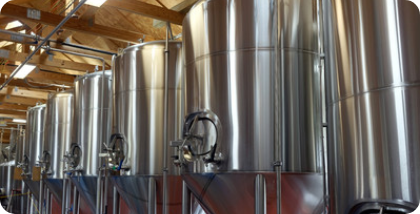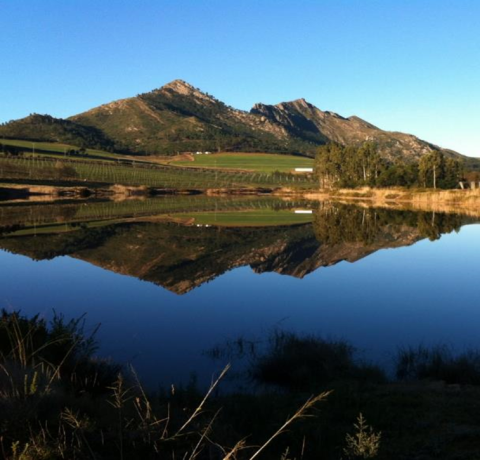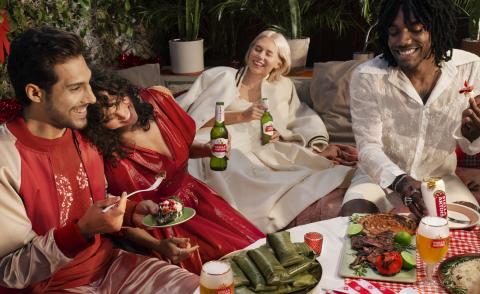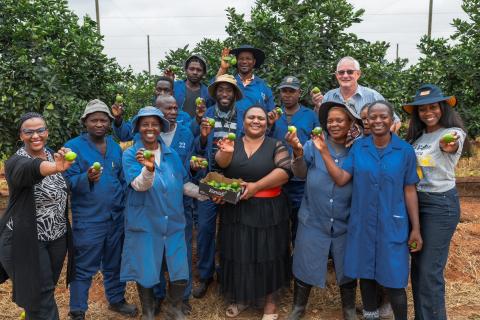
- SAB Beverages revenue grows 8% to R47.2-billion
- EBITA grows 10% to R9.6-billion
- Full Year dividend of R124.58-million for Zenzele, SAB’s empowerment programme
- Lager volumes grow 2% to 27.3-million
- Market share gains were made in the highly competitive beer business
- Soft drinks division ABI’s volumes grow 2% to 18-million
(Johannesburg, 23 May 2013): The South African Breweries posted another year of strong gains in revenue and operating profit to end March 2013, overcoming a challenging trading period with subdued economic growth and aggressive competitor discounting.
The continued strategic focus on market facing investments and retail execution delivered positive results, driving good volume growth across both the beer and soft drinks portfolio. This was achieved in the face of rising costs due to the continued weakness of the rand, increased commodity costs and a 10% hike in excise.
The company continued to make significant investments in market facing operations, funded largely by savings in non-market facing areas. A focus on ensuring tight working capital and capital expenditure resulted in strong cash flows.
SAB’s black economic empowerment scheme, Zenzele, benefitted from SAB’s stronger performance, with the company declaring a full year dividend of R124.58-million. This is the sixth dividend declared since the programme was launched in 2010, bringing the total dividends declared to date to R335-million.
SAB is made up of the beer business, soft drinks division ABI, Appletiser and a 29% stake in Distell.
SAB group revenue grew 8% to R47.2-billion on a constant currency basis from R43.5-billion previously.
EBITA grew by 10% to R9.6-billion from R8.7-billion previously and EBITA margins showed a 30 basis point improvement to 20.4% from 20.1% previously. As a result of an additional excise duty provision, SAB’s 29% share in Distell was negatively affected by R86-million, excluding which group margins would have increased to 20.6%.
SAB Executive Chairman Norman Adami said: “Despite the challenges, we have continued to deliver profitable and sustainable growth for the third consecutive year. Our strategy has been increasingly well executed and is delivering good results, with strong growth in revenue, margins and cash flow. Our margins improved in the face of a 10% hike in excise which is by far our single biggest cost.”
SAB Beer business
The lager business continued to grow and gain market share, with lager volumes improving 2% to 27.28-million hectolitres (hl) from 26.86-million hl the previous year.
Key achievements during the review period include:
- Market share gains have continued to be made in an increasingly competitive market, with SAB having raised its share to above 90%;
- In the local premium segment, Castle Lite continued to leverage its “Extra Cold” positioning, growing volumes more than 20% and achieving a share of more than 10% of the total industry, while Castle Milk Stout’s repositioning delivered positive results;
- The mainstream power brands – Castle, Carling Black Label and Hansa Pilsner – remain the bedrock of SAB’s success in the beer business, with Castle continuing its strong growth backed by its campaign of ‘It all comes together with a Castle’;
- The repositioning of SAB’s three global brands – Grolsch, MGD and Peroni – continues to gain traction, with Grolsch posting growth of more than 15%;
- The brands received several awards, with Carling Black Label beating global competitors to win a prestigious Gold Cannes Lions award in June, the first ever awarded to SAB. Castle Lager won the Grand Prix prize at SABMiller’s Global Mercatus Awards where SABMiller companies across the world compete, an award which Castle Lite won two years ago;
- Brand innovation was a key focus area, with a raft of new packaging formats, merchandising and promotional programmes unveiled;
- Strong retail execution and an ongoing improvement in customer service saw SAB named as the top supplier across the liquor industry by key customers;
- There was a further 22% increase in the number of sales people servicing customers across the board, and the role of the customer interaction centre was enhanced;
There was a continued focus across a range of initiatives on tackling alcohol abuse. Key highlights included further investing in our Responsible Trading Programme to promote responsible trading amongst retailers, and building on our work to reduce drink driving with a new public private partnership with the National Institute for Crime Prevention and the Reintegration of Offenders (Nicro). SAB also took the lead in driving meaningful initiatives to protect SA’s water supply, including the development of a detailed water risk map for each of its breweries and for the supply chain, one of the first companies in SA to do so.
Soft drinks business
Soft drinks volumes grew 2% to 18-million hl from 17.6-million hl, benefitting from increased market penetration, improved customer service levels along with well co-ordinated and executed market activation.
This was the result of the continued implementation of the growth strategy which focuses on improving customer service, investing in market-facing operating infrastructure and improving productivity throughout the supply chain.
The implementation of the strategy over the review period resulted in key successes, including:
- Improvements were made in supply chain and route to market activities that delivered better customer service and reduced costs;
- Investments in cooling equipment continued, with more than 6000 coolers added to the market;
- Improved market penetration was achieved through the use of market level partnerships and inventive reward structures, with the 2l PET pack benefitting in particular;
- Frequency of deliveries continued to improve and manufacturing capacity increased, with out-of-stocks significantly reduced;
- New customers continued to be added, with the outlet universe increasing by 20% to about 95 000 customers during the review period;
- Improved delivery to customers in local and traditional classes of trade through the use of local market logistics partners (MLP’s). These are independent distributors who service smaller and traditional markets, with 13 MLP’s added in the past year to reach 65. Collectively, the MLP’s have created 585 new jobs in local communities;
Appletiser, which is 100% owned by SAB, achieved good growth in revenue and profits, benefiting from higher prices and the implementation of productivity initiatives.
Other Beverage Business
Distell posted strong double digit growth in revenue, bolstered by a weaker rand and an increase in sales volumes in both domestic and international markets. Earnings fell by 4%, however, due to a one off excise duty provision of R297.8-million, resulting from the re-classification of wine Aperitifs by the South African Revenue Services. As a result, SAB’s 29% share in Distell posted a decline of 4% in EBITA or 18 basis points of EBITA margin.
Full Year dividend of R124.58-million declared for Zenzele empowerment deal
In terms of SAB Zenzele, the company’s broad-based black economic empowerment transaction, the SAB Board declared a full year dividend of R124.58-million, a 7.4% increase on the previous year’s dividend of R116-million. The dividend for the first half of the financial year amounted to R46.02-million and the second half dividend amounted to R78.56-million. It will be shared by the SAB Foundation, SAB Zenzele Employee Trust and SAB Zenzele Holdings Limited.
One of the unique features of SAB Zenzele is the payment of dividends to shareholders from the first year, which was undertaken in order to ensure that the scheme delivers real and tangible benefits. This year’s dividend means that a total of R335-million has been paid out to beneficiaries since the transaction was launched in 2010.
The SAB Foundation, which supports community based projects, will receive a full year dividend of R21.1-million against R20.4-million previously. The Foundation has three programmes which seek to promote entrepreneurship amongst historically disadvantaged people. A total of 109 micro and small enterprises have received financial investment and business support, resulting in 322 jobs being created to date. A cumulative R58.7-million in dividends has now been paid to the SAB Foundation.
SAB Zenzele Holdings Ltd, which holds shares for the benefit of retailers, will receive a dividend of R56.9-million from R50.7-million previously. Retailers who acquired the minimum allocation of shares for R100 will receive more than R740 in dividends for the full year, or seven times their initial investment. A cumulative R146.9-million in dividends has now been paid to SAB Zenzele Holdings.
Employee beneficiaries of the SAB Zenzele Employee Trust will receive a dividend totalling R46.6-million from R44.9-million previously. The average employee on the shop floor will receive a dividend of R2 528 for the year. A cumulative R129.4-million in dividends has now been paid out to the SAB Zenzele Employee Trust.
For further information, please contact Robyn Chalmers on 082 924 2267 or Azure Janneker on 079 505 6966



